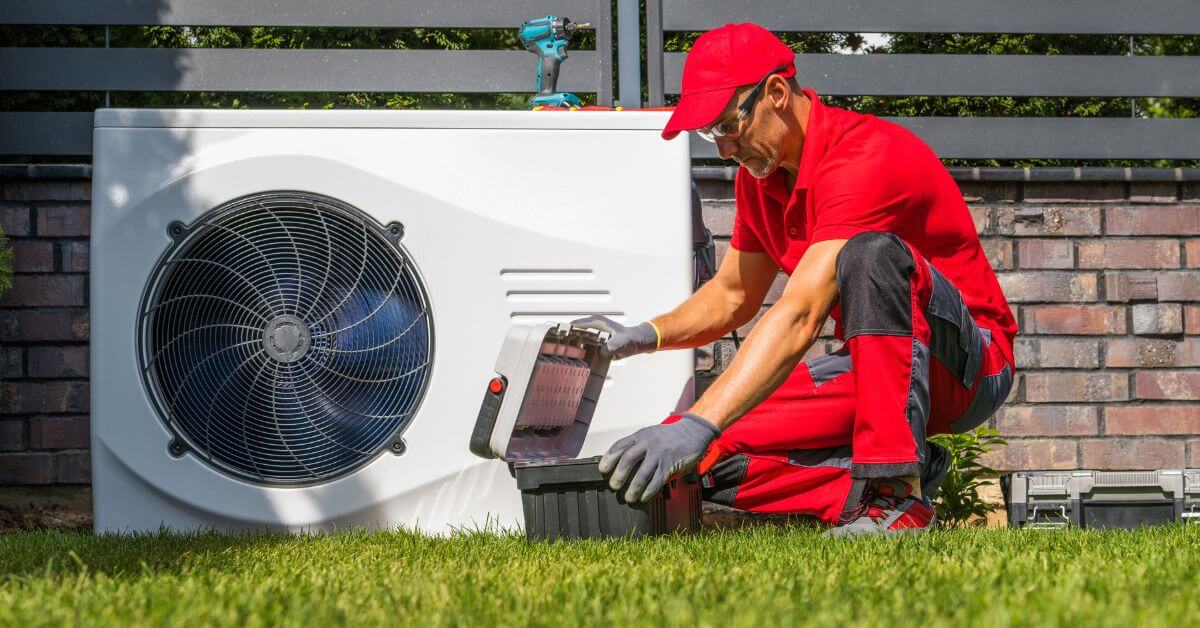
As the world shifts towards more sustainable and energy-efficient technologies, heat pumps have gained immense popularity for both residential and commercial heating And air solutions. These innovative systems are known for their ability to provide efficient heating and cooling while reducing energy consumption and environmental impact. If you're considering installing a heat pump, it's crucial to understand the various factors that influence the cost of the installation process. In this article, we'll delve into the intricacies of heat pump installations, breaking down the costs associated with different aspects of the process.
Before we dive into the cost considerations, it's essential to understand what a heat pump is and how it works. A heat pump is a versatile HVAC (Heating, Ventilation, and Air Conditioning) system that can provide both heating and cooling by moving heat from one place to another. This process is highly efficient, as it requires significantly less energy compared to traditional heating and cooling systems, such as furnaces or air conditioners. Heat pumps are environmentally friendly and can be an excellent choice for those looking to reduce their carbon footprint.
There are various types of heat pumps, each designed to meet specific heating and cooling needs. The most common types include:
Air-Source Heat Pumps: These heat pumps extract heat from the outdoor air during the heating season and expel heat to the outdoors during the cooling season. They are suitable for moderate climates.
Ground-Source (Geothermal) Heat Pumps: Ground-source heat pumps use the stable temperature of the ground or water source to efficiently heat and cool your home. They are highly efficient but typically have higher upfront installation costs.
Ductless Mini-Split Heat Pumps: Ductless mini-split heat pumps are ideal for homes without existing ductwork. They consist of an outdoor unit and one or more indoor units, allowing for zone-based heating and cooling.
Absorption Heat Pumps: Absorption heat pumps use a heat source like natural gas, propane, or solar energy to operate, making them an environmentally friendly choice.
Now that we've established the basics, let's explore the factors that influence the cost of installing a heat pump.
The type of heat pump you choose will significantly impact the installation cost. Air-source heat pumps are generally more affordable to install than ground-source heat pumps. Ground-source systems require excavation and installation of underground loops, which can be a substantial upfront cost. Ductless mini-split systems, on the other hand, can also be cost-effective, especially if your home lacks existing ductwork.
The size and capacity of the heat pump must match the heating and cooling requirements of your home. An undersized unit will struggle to maintain the desired temperature, while an oversized unit may short-cycle, leading to inefficiencies. A professional HVAC services technician will perform a load calculation to determine the right size for your heat pump, ensuring optimal performance and comfort.
The location of the heat pump installation can influence the overall cost. Installing a heat pump in an easily accessible area will be more affordable than placing it in a hard-to-reach or confined space. Additionally, ground-source heat pumps may require excavation, which can add to the installation cost.
The presence of existing infrastructure, such as ductwork or a compatible electrical system, can impact installation costs. If your home already has ducts in good condition, installing a ducted heat pump may be more cost-effective. However, in homes without ducts, ductless mini-split heat pumps are often a more affordable option.
Energy-efficient heat pumps with advanced features may have a higher initial cost, but they can lead to long-term energy savings. Look for heat pumps with high Seasonal Energy Efficiency Ratio (SEER) and Heating Seasonal Performance Factor (HSPF) ratings, as they indicate greater efficiency. Features like variable-speed compressors and smart thermostats can also contribute to the upfront cost but offer increased comfort and energy savings.
Professional installation is crucial for the efficient and safe operation of your heat pump. Labor costs can vary depending on factors like location, complexity, and the experience of the HVAC contractor. It's essential to hire a qualified and reputable technician to ensure proper installation, even if it means paying a bit more for their expertise.
Several additional costs may be associated with heat pump installation:
Permits and inspections: Some local authorities require permits and inspections for HVAC installations, which can add to the overall cost.
Electrical work: Depending on your existing electrical system, you may need to make upgrades or modifications to accommodate the heat pump's power requirements.
Ductwork modifications: If you choose a ducted heat pump and your existing ductwork needs adjustments, this can add to the installation cost.
Landscaping and restoration: Excavation or outdoor unit placement may require landscaping or restoration work, which can also increase the cost.
Maintenance: While not an upfront cost, it's essential to budget for ongoing maintenance to keep your heat pump in optimal condition and extend its lifespan.
To calculate the total cost of installing a heat pump, you should consider all the factors mentioned above. It's advisable to obtain multiple quotes from reputable HVAC contractors to compare costs and make an informed decision. Keep in mind that the upfront investment in a quality heat pump service and professional installation can lead to long-term savings on energy bills and reduce maintenance costs.
The cost of a heat pump installation can vary widely based on the specific circumstances of your home and your geographical location. To provide a rough estimate, let's consider some national averages:
Air-Source Heat Pump: The installation of an air-source heat pump for a typical 2,000-square-foot home may range from $3,000 to $6,000 for the unit and $2,500 to $5,000 for installation, bringing the total cost to around $5,500 to $11,000.
Ground-Source (Geothermal) Heat Pump: A ground-source heat pump installation can be more expensive due to the excavation and ground loop installation. Costs may range from $10,000 to $25,000 for the unit and $10,000 to $30,000 for installation, resulting in a total cost of approximately $20,000 to $55,000.
Ductless Mini-Split Heat Pump: The installation of a ductless mini-split heat pump may cost between $3,000 and $8,000 for the unit and $2,000 to $5,000 for installation, totaling around $5,000 to $13,000.
It's important to note that these are rough estimates, and actual costs can vary significantly. Local factors, such as labor rates and climate, will play a significant role in determining the final cost.
When considering the cost of a heat pump installation, it's essential to explore potential financial incentives and rebates that may be available in your area. Many governments and utilities offer incentives to encourage the adoption of energy-efficient heating and cooling systems. These incentives can significantly reduce your upfront costs and improve the overall return on investment. Some common programs include federal tax credits, state or local rebates, and energy efficiency grants.
Additionally, using a heat pump can lead to long-term savings on energy bills. These energy-efficient systems consume less electricity for heating and cooling, reducing your overall energy expenses. Over time, the energy savings can help offset the initial installation costs.
After the initial installation, it's crucial to consider ongoing maintenance and operating costs. Regular maintenance, such as cleaning filters and coils, should be performed to ensure the heat pump operates efficiently. It's recommended to schedule annual professional maintenance to keep the system in optimal condition.
Energy costs will also be a significant factor in the long term. Heat pumps are known for their energy efficiency, and their operating costs are generally lower than those of traditional heating and cooling systems. However, the exact savings will depend on factors like the system's efficiency, your local energy rates, and how well your home is insulated.
Installing a heat pump is a smart investment for those looking to improve their home's comfort while reducing energy consumption and environmental impact. While the upfront costs can vary based on factors like the type of heat pump, installation location, and additional expenses, the long-term benefits make it a worthwhile endeavor.
To ensure a successful heat pump installation, it's essential to work with a reputable HVAC contractor who can assess your specific needs, provide accurate cost estimates, and handle the installation professionally. Additionally, explore available financial incentives and rebates in your area to reduce the initial investment.
Keep in mind that the true value of a heat pump extends beyond the immediate installation cost. Over time, energy savings, increased home comfort, and reduced environmental impact make heat pumps a sustainable and cost-effective choice for heating and cooling your home. Most of the time you will know the signs you need repair for your heat pump or replace it. Always ask your HVAC provider to diagnose the unit.
